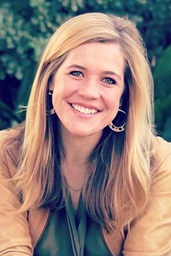Key points:
• Discussions over a denominational split raise complicated polity questions.
• Pursuing those answers is essential, in case civil courts start asking for them.

Photo by Todd W. Lawrence.
Commentaries
Can a local church in Arizona, with a commitment to minister among migrants who cross the border from Mexico, refinance a mortgage on its building and direct the net saving of $1,000 per month from its building fund to the immigration program?
Can a retired United Methodist elder in Georgia, whose charge conference membership is in a local church now in a process of disaffiliating from The United Methodist Church, keep his charge conference membership in that congregation after it has completed its disaffiliation?
These are not hypothetical questions. They involve actual situations that have been under discussion in the past or are under discussion right now. As the denomination moves toward the possibility of schism, these questions illustrate the kinds of issues that any form of separation will have to accommodate. Any future “Methodist” body will have to decide whether deacons are ordained or lay, whether denominational laws or congregational practices will have the final word over church finances, and whether a clergy or lay person can simultaneously belong to two denominations. Every church polity has to handle such things.
In United Methodist polity today, almost every decision must be made connectionally. Unless it is a decision by a lay person to withdraw from membership in one’s local church or by a clergy member of an annual conference to surrender one’s credentials and leave the ministry of the denomination, actions by an individual or a congregation or a bishop or a conference connect to some other entity with authority to review the acts.
Many examples exist.
An ordained minister cannot “retire” but is granted the retired relationship by an annual conference vote or by a mandate of church law. A local church cannot construct a new building unless authorities in the district give their approval for the architectural and financial aspects of the project. A person may boldly say, “God has called me to the ministry!” But affirmations and approvals at local, district and annual conference levels must confirm the person is called, or a genuine call does not exist. Any self-authenticating claim by an individual is meaningless.
The best way to comprehend these practices in our polity is not to start reading The Book of Discipline. That volume contains the Constitution of The United Methodist Church and laws that the denomination’s General Conference has enacted. But it also contains plenty of other material — the Social Principles, for example — that has been officially approved but carries no constitutional or legislative authority. It contains materials that are theological and doctrinal in character also, but some of them are enactments that can be altered by a simple majority of the General Conference, while others are constitutionally protected from any possible alteration by the General Conference.
Read more
Can an Annual Conference vote to leave The United Methodist Church?
Does the Judicial Council in 2021 Have a Quorum?
Must Annual Conferences Elect General Conference Delegates in the 2021 Sessions?
Can the Jurisdictional Conference session occur before the General Conference meets?
Can a jurisdictional conference be convened in a special session to elect bishops?
When will the delegated conferences meet and who will be the delegates?
Within recent months, I have had the experience of being asked a lot of questions about United Methodist polity. The inquiries have come from bishops, lay persons, pastors, delegates to the General Conference, lifelong members of Methodist or United Methodist churches, and newcomers to the denomination. I decided to look for some answers and write about them.
The product of this activity became several papers that attempt to address some United Methodist questions. At times, I have sought and received help from librarians and other church scholars in searching for answers. On numerous occasions, I have recognized that the definitive answers we would like to find can be elusive.
Among the first questions I pursued are the deeply debated issues surrounding an annual conference’s authority. But there are others. Consider these:
— Since the annual conference constitutionally has exclusive authority to determine who are clergy members of annual conferences and who are chosen to be ordained, and since the General Conference constitutionally has full legislative authority to enact laws about processes for becoming a clergy member and an ordained minister, what happens if a law passed by General Conference says a certain person cannot be ordained but a vote by an annual conference says such a person will be ordained?
— Since a bishop constitutionally has authority to appoint ministers after consultation with the district superintendents and the General Conference has constitutional authority to write laws defining such consultation, is the “consultation” on appointments a constitutional matter involving bishops and district superintendents or is “consultation” a matter of church law as the General Conference has defined it?
— Since the Judicial Council makes “final” decisions on the constitutionality and legality of various actions, including legislative acts by the General Conference, can the Judicial Council make a final decision about church laws that specify the terms of office for its own members and alternates?
We are at a point where the future of the denomination is at stake. Many proposals to split the denomination await General Conference action. Most prominent of them — the Protocol of Reconciliation and Grace Through Separation — is driving some United Methodists, including a district superintendent, to establish a transitional committee for a new Methodist denomination. One of the bishops in Europe has announced his intention to join that new denomination.
Such things prompt queries needing answers. And pursuing answers is essential, in case civil courts start asking for them.
I have addressed several United Methodist questions in papers that rely on a combination of historical research and pastoral experience. Links to all the questions are in the attached sidebar.
At the very least, asking questions and finding answers should precede making decisions.
Lawrence is professor emeritus of American Church History at Perkins School of Theology, Southern Methodist University, and research fellow at the Center for Studies in the Wesleyan Tradition at Duke Divinity School. He is also former president of the Judicial Council.
News contact: Tim Tanton or Joey Butler at (615) 742-5470 or [email protected]. To read more United Methodist news, subscribe to the free Daily or Friday (weekly) Digests.
Like what you're reading? Support the ministry of UM News! Your support ensures the latest denominational news, dynamic stories and informative articles will continue to connect our global community. Make a tax-deductible donation at ResourceUMC.org/GiveUMCom.



